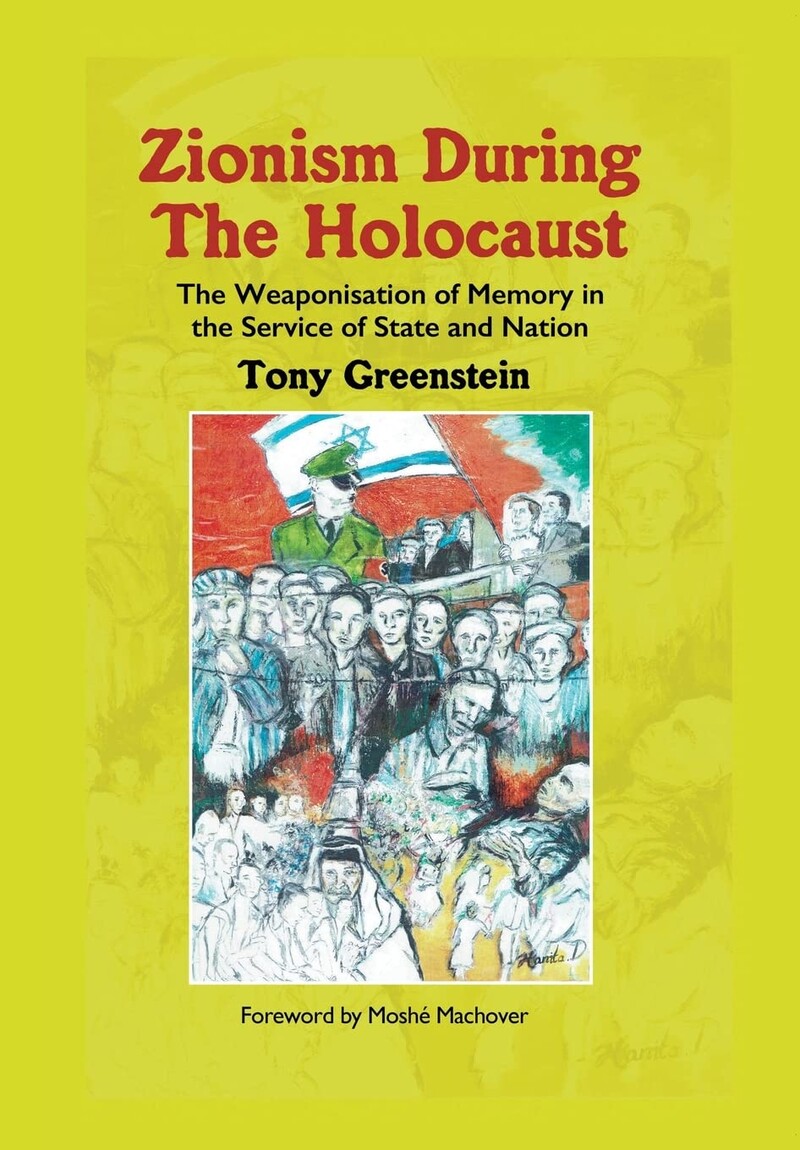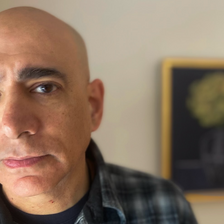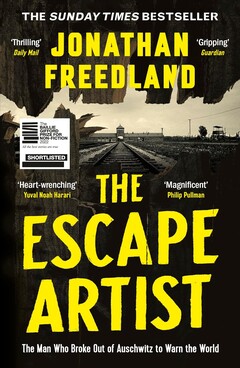The Electronic Intifada 14 March 2023

Zionism During the Holocaust: The Weaponisation of Memory in the Service of State and Nation by Tony Greenstein, self-published (2022)
Tony Greenstein’s new book opens on a personal note: “from an early age, I had my doubts about Zionism.”
The son of an Orthodox Jewish rabbi, Greenstein has for decades been a tireless Palestine solidarity activist and an uncompromising anti-Zionist.
Greenstein explains cogently how he came to reject the ideology on which Israel was founded.
“I found it difficult to reconcile Marxism, a universalist political ideology that believes in the unity of the oppressed and the working class, with Zionism, an exclusivist ideology.”
In a school debate he played “devil’s advocate and in the process became convinced of the case against Zionism.” He has never looked back since.
His early doubts were shored up after learning that American Zionist leaders had opposed the entry of Jewish refugees from Europe during World War II. So began a life-long project: researching the Zionist movement’s collaboration with fascism.
Greenstein has been writing about this topic for years on his valuable and prolific blog. He’s also an occasional contributor to The Electronic Intifada and we had him on our podcast not long ago.
It speaks volumes about the sorry state of British publishing that Greenstein has had to resort to self-publishing.
Back in the 1980s, Lenni Brenner’s important book on the same topic, Zionism in the Age of the Dictators, was put into print by independently minded Scottish publisher Christopher Helm.
So Zionism During the Holocaust is breaking a long silence in print. Brenner’s book is both cited and critiqued by Greenstein.
As well as bringing the story up to date, Greenstein’s book is more comprehensive than Brenner’s. He gives chapter and verse on the history of Zionism’s ideological affinity for European fascism.
He explains how “the Nazi leadership quoted Zionist sources to validate their claims that Jews could not be assimilated.” Quoting pro-Israel historian Edwin Black, Greenstein writes, “It was difficult for German Jews to refute Nazi claims ‘when a loud and visible group of their own continually published identical indictments … Zionism had become a tool for anti-Semites.’”
Zionism is at its heart a racially exclusive ideology for the promotion of white supremacy – but it also wants a specifically Jewish supremacy in Palestine.
As well as such relatively well known events as the Haavara Agreement – a deal between the Zionists and Nazi Germany on transferring German Jews to Palestine – Greenstein also details the treachery of Rezső Kasztner, a Hungarian labor Zionist leader.Kasztner handed Hungary’s half-a-million-strong Jewish community over to Nazi death camps in exchange for the safe passage of himself and a small group of other Jewish “notables” who were then permitted to become settlers in Palestine (something I’ve written about before in detail).
Greenstein’s book really shines in his chapter on Rudolf Vrba and the Auschwitz Protocols.
Later entered into evidence during the Nuremberg trials, the Auschwitz Protocols were the first eyewitness accounts from inside the Nazis’ worst extermination camp. The accounts were those of Rudolf Vrba and Alfred Wetzler, two Jewish inmates who had managed to escape in April 1944.
The pair were intent on warning Hungary’s Jews that “preparations were being made to exterminate the last major Jewish community left in Nazi-occupied Europe.” Here was solid evidence that the camps were not only concentration camps that employed slave labor, but were systematically exterminating millions of people.
Unfortunately for Hungary’s Jews, their community was by that time led by Rezső Kasztner, who was secretly in league with the Nazis.
Years later, as a leading government official and parliamentary candidate for the ruling Israeli party Mapai, Kasztner ended up facing what was effectively a trial of public opinion in a related libel case. His collaborationist chickens had come home to roost.
Yet Kasztner’s defense was always that he had acted on behalf of the official Zionist movement and according to their instruction – a point which happened to be true.
As public outrage grew in Israel among Holocaust survivors, Kasztner was dropped from the list of candidates for Mapai in the upcoming election; there were even calls for him to be hanged as a traitor.
But – conveniently for the Mapai government – he was murdered by an informant with the Shin Bet secret police before he could face justice.
The system was unwilling and unable to incriminate itself.
Tricked into Auschwitz
Lenni Brenner’s book covered this sordid episode of history fairly well. But Greenstein’s main criticism of the American author is that he did not take into account the Auschwitz Protocols and how Kasztner had actively covered them up.
This meant that Hungary’s Jews were left in the dark as to the true, exterminationist nature of the Nazi “labor camps” they were being tricked into by Kasztner and his cronies.
As Greenstein explains, Kasztner “arrived in Slovakia at the end of April [1944] and was immediately given a copy” of the escapees’ eyewitness testimonies out of Auschwitz. Yet “Kaztner’s response was to suppress them.”
His treatment of the Auschwitz Protocols puts the lie to claims by defenders of Kasztner (who, astonishing, still exist today and even include Guardian columnist Owen Jones) that he could not have known.
He knew exactly what the Nazis were doing in the extermination camps. Yet he actively covered the genocide up in order to protect his own negotiations with Nazi leader Adolf Eichmann.
Those same negotiations allowed Kasztner, his family and a relatively small group of Jewish “notables” to leave the country unharmed.
As part of this deal, most of Hungary’s Jews were sent to the death camps.
They boarded the trains on Kasztner’s advice. They were deceived by their own leaders and were murdered.
“The Protocols were erased from Zionist historiography” Greenstein explains. Vrba’s 1963 memoir “was published in virtually every language bar one – Hebrew.”
A second part of Greenstein’s book that I found particularly illuminating was the chapter on what he terms “the Zionist obstruction of rescue.”
With the Holocaust imminent, the Zionist leadership (both in Palestine and globally) was at best indifferent to efforts to rescue Europe’s Jews from the coming Nazi apocalypse – efforts it contemptuously dismissed as “refugeeism.”
At worst, the Zionists actively opposed such efforts. Greenstein collates some truly terrifying contemporary quotes by Zionist leaders.
Blocking Jewish refugees
“Are we again … going to confuse Zionism with refugeeism, which is likely to defeat Zionism? … Zionism is not a refugee movement,” stated one. Another worried that “it is possible for the diaspora to undermine the Jewish state, because the urgency of the rescue issue could lead the world to accept a temporary solution. We should place increased emphasis on fundamental Zionist ideology.”
David Ben-Gurion himself (later to become Israel’s first prime minister) in 1938 similarly fretted that Jewish morality would lead to European Jewish refugees being rescued and sheltered in countries other than his emerging settler-colony in Palestine: “If the Jews are faced with a choice between … rescuing Jews from concentration camps on the one hand, and aid for the national museum in Palestine on the other, the Jewish sense of pity will prevail … [and] Zionism will vanish from the agenda.”
Clearly something had to be done to prevent such a disaster.
And something was done. Zionism’s influential diplomats and lobbyists flexed their muscles. Chaim Weizmann, the leader of the Zionist Organization (later Israel’s first president) pressured British Colonial Secretary Malcolm MacDonald to actually deny entry to German Jewish children fleeing Nazi persecution in the wake of the Kristallnacht pogroms.
“Weizmann’s attitude shocked me,” MacDonald later wrote. “He insisted on the children going to Palestine. As far as he was concerned it was Palestine or nowhere.”
Luckily, the Board of Deputies of British Jews had not yet been conquered by the Zionists. “If it had been then the children of the Kindertransport might have become one more grisly statistic,” Greenstein concludes.
Zionist activists in the US, meanwhile, actually picketed the offices of a non-Zionist Jewish group which was organizing food parcels to aid starving Jewish ghettos in Poland.
There’s so much of this depraved stuff that it’s genuinely hard to comprehend. This is by no means an easy read.
The weaknesses of this book lie rooted in the fact that Greenstein was unable to find a publisher and hence also a dedicated editor. For one thing it is too long, at almost 500 pages.
There are a couple of chapters that struck me as unnecessary.
Greenstein also assumes too much knowledge on the part of his readers. A dizzying array of characters, places and acronyms are dropped into the book with very little explanation.
Some of the general copyediting is scrappy.
Nonetheless, this book remains a monumental achievement. It deserves as wide an audience as possible.
It’s not too late for a publisher to bring it out – perhaps in a slimmer, re-edited second edition.
Asa Winstanley is an investigative journalist and associate editor with The Electronic Intifada.






Comments
Zionism
Permalink Omar R Kassem replied on
Thank you for informing me about this book. There is much that needs to be better understood about the Holocaust.
Zionism during the Holocaust
Permalink JennyK replied on
I’m about three quarters through the book & cannot recommend it too strongly. I knew very little about the subject before starting it & I have learnt a very great deal. It shows the true nature of the Zionist mindset & explains the current racist violence, dispossession & destruction perpetrated by Zionists against Palestinians today & which I have witnessed during my 10 visits to the occupied West Bank.
a monumental work, and a monument to Jewish victims of Zionism
Permalink tom hall replied on
I concur with all elements of this review. Tony Greenstein's book is an essential source for any inquiry into the darkest, truly anti-human aspects of Zionism during its most crucial phase. Readers unfamiliar with the details will be shocked by the ruthlessness with which the movement spent millions of Jewish lives like so many pounds and shillings in the foulest of bargains with Hitler's exterminators. Today the scales are falling from the eyes of so many of Israel's supporters. Books of this kind will contribute greatly to furthering that vital awakening. When Israel loses the diaspora Jews- as it will- the whole rotten game will be over.
Christian Zionism
Permalink Stephen Shenfield replied on
Israel is gradually "losing the diaspora Jews" (most of them), but unfortunately it retains the support of many millions of Christian Zionists in the USA and elsewhere. Netanyahu has publicly stated that the Evangelicals are now Israel's main backers, more reliable than the Jews.